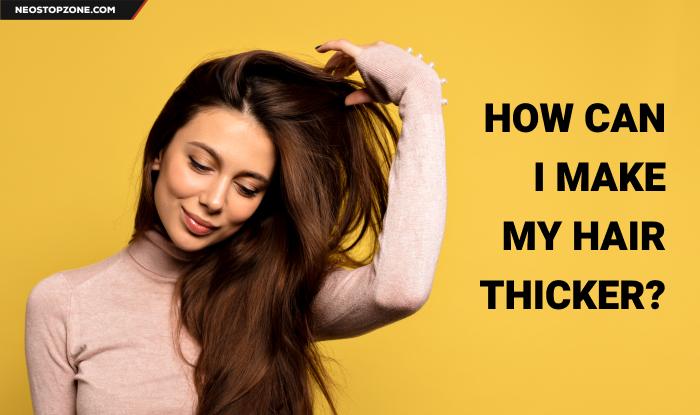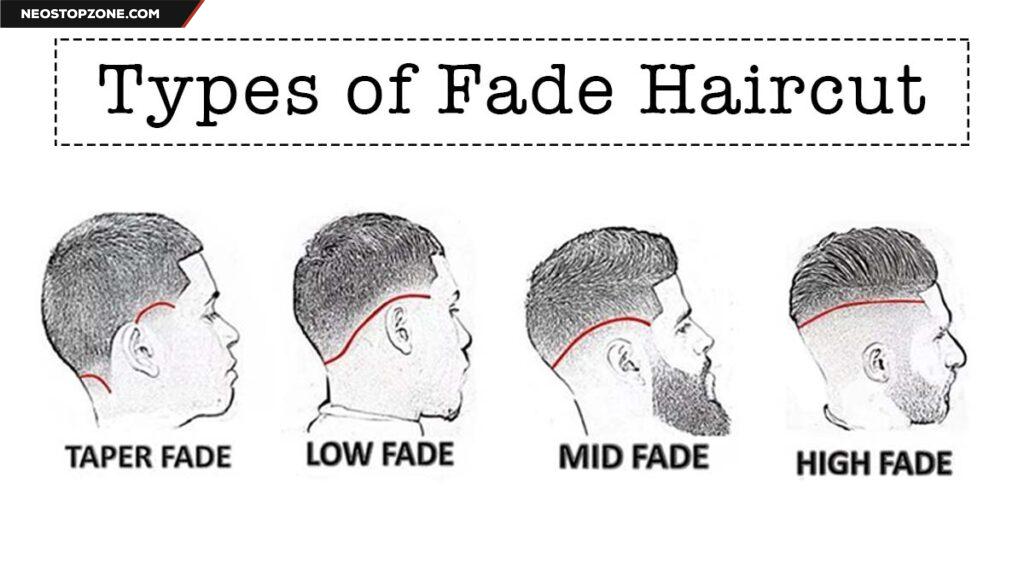Make Your Hair Thicker
To find out if we can transform our thinning strands, we asked Dr. Hope Mitchell, founder and medical director of Mitchell Dermatology with locations in Pearisburg and Fremont, Ohio, to speak with Dr. Karen Grossman, MD, board-certified cosmetic dermatologist, and consultant. Rough Five Skincare, plus Dr. Amy Pike, MD, DVP of Dermatology for Himes and Hers, to learn more.
Is it really possible to get thick hair?
“The strands of hair [and you’re] texture are primarily a genetic thing,” explains Dr. Mitchell. “But there are ways to avoid breakage, hair loss, and hair loss, as well as get thicker-looking hair with the proper hairstyles, haircare products, and lifestyle.”
But if you’re going the product route, it’s best to skip anything that goes directly on the scalp. Instead, opt for a scalp massage.
“Over time, hair products leave residue and clog the hair roots – exfoliating removes this build-up to allow hair growth and promotes a natural lift on the hair and nutrient absorption,” continues the MD. “Scalp massage and scalp exfoliation promotes blood circulation, oxygenation, and stimulates the natural oil that strengthens the hair roots.”
Why has my hair become thinner over time?
Hair habits and lifestyle choices can lead to hair loss. “It’s best not to over-process the hair because this can lead to thin, brittle hair that breaks easily,” says Dr. Pike. So if you notice any thinning, it may be best to pause chemical treatments for a while. “Bleaching or coloring hair, using chemical perms or straighteners, or heat products can all weaken hair.”
Also, wearing tight or heavy styles can lead to traction alopecia, which thankfully is reversible in its early stages.
What are the best products and ingredients to use to get thick hair?
When it comes to shampoos and conditioners that claim to thicken hair, make sure you do your research and pay attention to the ingredient label before using them. Also, if you have a scalp condition, it’s always a good idea to check with your dermatologist before putting on a new product to test.
“Volumizing shampoo acts by dissolving product build-up or clogs at the roots to allow for hair growth as well as absorption of volumizing ingredients such as caffeine, biotin, and meadowfoam seed oil,” says Dr. Mitchell. “Dense shampoo makes hair thicker by infusing it with proteins, vitamins, polymers, and moisturizers.” Derm Avalon’s Biotin B-Complex Thickening Shampoo and Conditioner. She adds that Bumble & Bumble’s Pret-a-Powder dry shampoo if you’re in a hurry or in the middle of a wash,
but if those products don’t work for you, just keep this in mind: “Those products Use products that are free of alcohol because of its drying effect; look for products such as hydrolyzed oat protein and fatty alcohols such as cetyl or Cetearyl,” Dr. Michelle persists. “[I recommend products] that reduce hair breakage and strengthen hair strands and roots.”
That said, be on the lookout for products containing argan oil, aloe vera, biotin, and coconut oil or milk to strengthen your hair. Dr. Grossman also looked at saw palmetto, maca, and keratin.
“Saw saw palmetto helps reduce DHT, a hormone that contributes to hair follicle shrinkage, Maca provides hormonal support for peri/postmenopausal women, helps block DHT, and keratin is a protein that mimics the keratin in our hair. It provides essential building blocks for growth.”
She is also a fan of Horsetail. “[It] is a natural source of silica that promotes hair strength.”
Can diet or supplements make my hair thicker?
Besides cleansing and conditioning products, there are other ways to help you get thicker hair. It’s not just what’s on your scalp and strands, it’s what’s in your body. “Watch your diet,” warms Dr. Mitchell, “protein, fatty acids, and vitamins A, B, C, D, and E.” A diet rich in sugar can help people experiencing hair loss.”
Dr. Grossman recommends dietary supplements for those looking for the easiest way to increase density and texture in the hair and encourages consumers to pay attention to the ingredients. “While there are many products available on the market, some have undergone more testing than others,” she admits. “Two of my favorites are Pro and Viviscal..”
However, if you have a condition such as androgenetic alopecia, it is best to speak to a dermatologist.
Which professional treatments can help my hair grow thicker?
In-office micro-needling treatments can help promote hair growth. “As with topical minoxidil treatments, [microneedling] will encourage hair regrowth and thickness.” Her One Minoxidil 2% Solution promotes hair growth by removing old hairs and replacing them with new, stronger strands. But just keep in mind that once you stop using the medicine, your hair will return to its original state.
“Hair loss can have many causes, including genetics, thyroid problems, or vitamin deficiencies, and supportive medical treatment may be available,” says Dr. Pike.
That said if you notice any hair thinning, always visit a doctor before trying home remedies.


